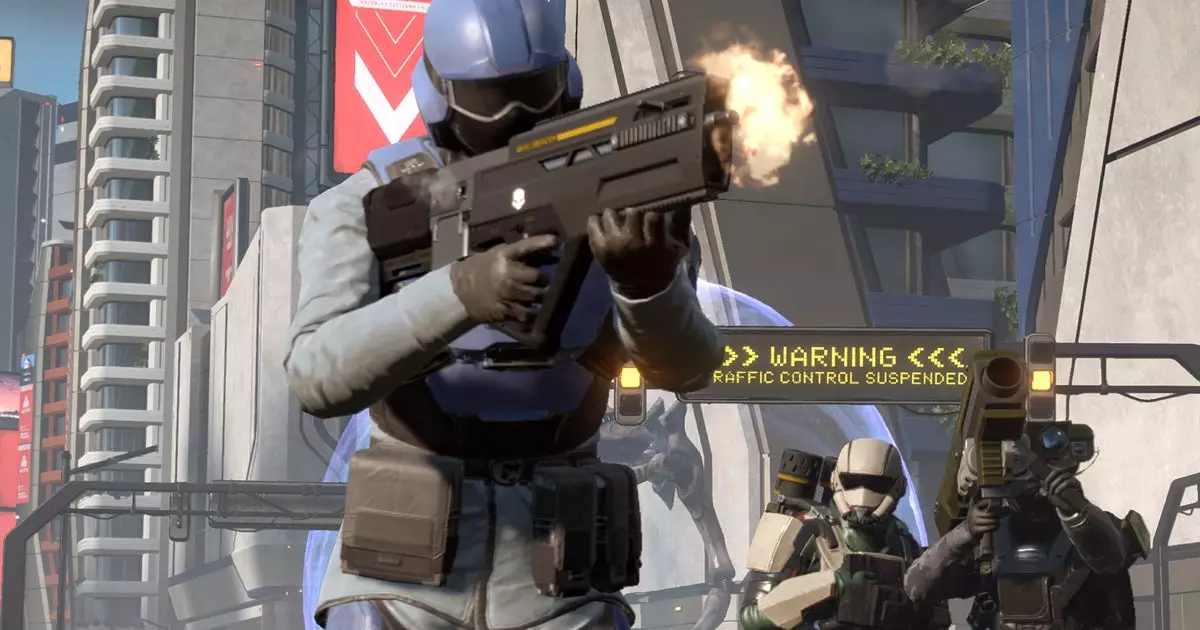The recent conclusion of the “Heart of Democracy” update in Helldivers 2 showcased an exhilarating yet arduous struggle against the Illuminate invasion, where players from across the globe united to protect the cherished territory of Super Earth. The details of this virtual war are not merely pixels on a screen but serve as a lens through which we can explore collective resistance, cultural significance, and the challenges of online collaboration.
An Alliance Across Borders
In this virtual battleground, the city of Equality-On-Sea, mirroring the real-world Shanghai, emerged as a focal point for players’ defensive efforts. The triumph of this fictional city even made it into the mainstream media landscape, with Kanka News’s Good Morning Shanghai providing coverage of this digital achievement. The anchors praised both Chinese and international gamers for their collaboration, illustrating how video games can transcend cultural boundaries, fostering teamwork and unity among disparate communities. Such recognition from a formal news outlet underscores the growing relevance of gaming in the fabric of contemporary culture and society.
The Controversy of Expectations
Despite the glow of victory, the aftermath was clouded by some discontent. A segment of the player base engaged in review-bombing over what they perceived as developer mismanagement regarding the defense of Equality-On-Sea. The fact that players couldn’t fully liberate the city sparked anger. This uproar is reflective of a broader issue within the gaming community: high expectations versus the reality of game mechanics. The yearning to see tangible results from collective efforts underpinned by the intense emotional investment players had in their experience speaks volumes about the current state of player engagement in online games.
Miscommunication Amidst Invasion
Adding to the tumult, it appears there was a significant misunderstanding rooted in the game’s Chinese language version. Some players believed they could reach the coveted 100% defense rate for Equality-On-Sea during the ongoing conflict, only to find out that the influx of fresh Illuminate troops barred any such victory. This miscommunication highlighted the delicate relationship between game design and player interpretation— a reminder that even in a high-tech age, language barriers can lead to players feeling misled or marginalized.
A Reflection of Reality in Gameplay
Ultimately, Helldivers 2 serves as more than just a source of entertainment; it acts as a microcosm of societal interactions. The battle for Equality-On-Sea didn’t just represent a fight against a digital enemy but mirrored real-world themes of collaboration, understanding, conflict resolution, and even frustration. Through this lens, we recognize that gaming isn’t just a pastime—it can foster unity among players fighting for a common cause, eliciting emotions and reactions that resonate beyond the virtual space.
Culture and Community in Digital Warfare
As we reflect on the events surrounding Helldivers 2, it becomes increasingly clear that the game industry has evolved to encapsulate complex human interactions. While games like this may primarily exist in the virtual realm, they undoubtedly reveal cultural nuances and communal struggles in our interconnected world. The victory at Equality-On-Sea speaks not just to an amusing conquest in digital warfare but also to the shared human experience that lies beneath it all, showcasing how, even in pixelated chaos, there can be moments of hope and collaboration.


Leave a Reply